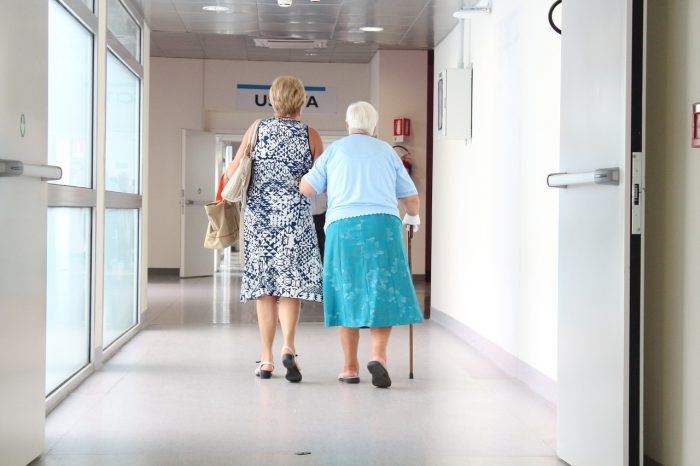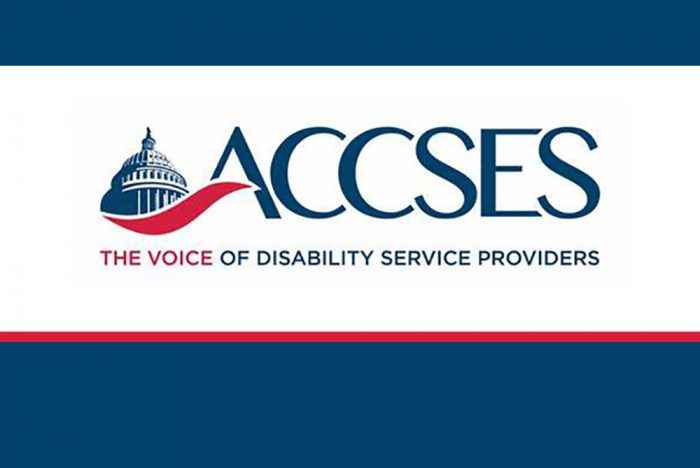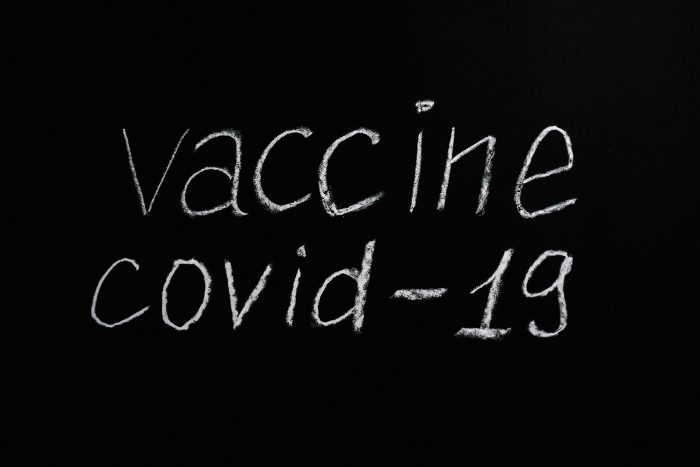House Appropriations Committee Holds DDAP Budget Hearing
The Pennsylvania House Appropriations Committee held its Department of Drug and Alcohol Programs (DDAP) budget hearing on Wednesday, Feb. 24. The entire hearing, which took just under 45 minutes, can be viewed here. In addition, DDAP budget documents, including the governor’s executive budget (known as the Bluebook), a list of the agency’s contracts, and its request for approval of federal funds can be viewed here.
At the hearing, DDAP Secretary Jennifer Smith and Deputy Secretary Ellen DiDomenico answered questions from the committee.
Pennsylvania Legislative Services wrote the following summary:
Committee members present included Chairman Stan Saylor (R-York), Minority Chairman Matt Bradford (D-Montgomery), and Representatives Rosemary Brown (R-Monroe), Lynda Culver (R-Northumberland), Torren Ecker (R-Adams), Jonathan Fritz (R-Susquehanna), Keith Greiner (R-Lancaster), Doyle Heffley (R-Carbon), Johnathan Hershey (R-Juniata), Lee James (R-Venango), John Lawrence (R-Chester), Zach Mako (R-Northampton), Natalie Mihalek (R-Allegheny), Tim O’Neal (R-Washington), Clint Owlett (R-Tioga), Chris Quinn (R-Delaware), Greg Rothman (R-Cumberland), Meghan Schroeder (R-Bucks), James Struzzi (R-Indiana), Ryan Warner (R-Fayette), Jeff Wheeland (R-Lycoming), David Zimmerman (R-Lancaster), Amen Brown (D-Philadelphia), Donna Bullock (D-Philadelphia), Morgan Cephas (D-Philadelphia), Austin Davis (D-Allegheny), Elizabeth Fiedler (D-Philadelphia), Marty Flynn (D-Lackawanna), Ed Gainey (D-Allegheny), Patty Kim (D-Dauphin), Emily Kinkead (D-Allegheny), Stephen Kinsey (D-Philadelphia), Leanne Krueger (D-Delaware), Ben Sanchez (D-Montgomery), Peter Schweyer (D-Lehigh), and Joe Webster (D-Montgomery).
Rep. Heffley commented that the General Assembly passed legislation in the previous session to create a bed registry for drug rehabilitation facilities to announce openings. He noted that the registry is not open to the public. He asked what percentage of those facilities are listed on the website. Sec. Smith answered that the open bed website has not been used as widely this year as in prior years; rather, she said, “our hotlines are really the most important mechanism for folks to access treatment services.” She explained that those who operate the hotlines work with their provider network on a daily basis. “Even with a bed registry type of pool, without it being absolutely real-time, there’s still a need for single county authorities or hotlines to comb through providers and figure out if open beds are really available or not available,” she said. Sec. Smith lauded the single county authorities in Pennsylvania for their close relationship with providers.
Rep. Heffley pointed out that there still is a disconnect between wait times for treatment. He added that many hospitals keep bed registries in case of disaster emergencies through a federal program and asked if Sec. Smith had inquired if that system could be expanded for drug rehabilitation openings. Sec. Smith responded that DDAP partnered with the Department of Health (DOH) to send a letter to the federal government; however, they were advised that the federal bed registry system was not available for states to use.
Rep. Heffley explained that his conversations with law enforcement and other officials have revealed the expansion of methamphetamine use during the pandemic. He asked what DDAP has done to aid in reducing the expansion. Sec. Smith stated that she had previously spoken about the reemergence of methamphetamine and reported that Pennsylvania is one of the few states that has hosted symposiums on addressing the issue. She noted that law enforcement started to report higher seizure rates of both methamphetamine and cocaine several years prior. “We know that there’s a very strong correlation between drug seizures and what follows is the usage of those substances and people presenting themselves for treatment with those issues,” she said. Sec. Smith detailed that many drug users are using several different drugs, which compounds their addiction and may deteriorate the success rate of treatment or the use of naloxone. She noted that while opioid addiction may be treated through medication, there is no available medication for methamphetamine. Sec. Smith expounded that DDAP has worked to roll out information about addiction to multiple substances and there are programs available for individuals through the provider community. “Stimulants, in combination with COVID-19, is what has contributed to an increase of overdose deaths in 2020,” she said.
Rep. Cephas inquired about how DDAP addresses maternal mortality. She noted that the media has elevated the interest in maternal mortality and several solutions have received bipartisan support. “As much as we’re paying attention to the issue and as much as we’re shifting policy, we are still nowhere near out of the woods in terms of reversing the trends in Pennsylvania,” she said. She stated that a recent report found that maternal mortality has increased in the commonwealth, with 60 percent due to accidental poisoning, which includes drug overdoses. She asked what DDAP is doing to reduce accidental poisoning deaths. Sec. Smith pointed out that the State Opioid Response grant is delivering a large amount of federal funds to address opioid overdoses. “One of the grant opportunities that we provided is focused on pregnant and parenting women, specifically,” she said. “That grant was able to serve 500 mother and child combinations just during the first year of the grant.” She added that several intrastate workgroups have also been formed to create solutions. She explained DDAP created a perinatal quality collaborative, which works to reduce maternal fatality and improve care for women who have recently given birth or are still pregnant. “What this project really does is pull together teams that create learning sessions. They work together to create different quality improvement projects to access coaching and resources to specifically improve the programs they have in place,” she said.
DiDomenico added that the quality improvement project focuses on the issue of maternal mortality from a systematic level, such as working with health care providers to ensure that patients “don’t fall through the cracks.” Particularly, DiDomenico stated that the program seeks to help children born with substance use disorder.
Rep. Rothman questioned how DDAP met the needs of those seeking treatment during the pandemic. Sec. Smith replied that DDAP was fortunate that the federal government made quick changes to allow for increased access to medication, such as increasing the allotted time for an individual taking medication like Suboxone from 14 days to 28 days and waiving face-to-face evaluations.
Rep. Rothman asked for Sec. Smith’s professional opinion on the legalization of recreational marijuana within Pennsylvania. Sec. Smith responded that although she fully supports the decriminalization of marijuana, the legalization of recreational marijuana must be accompanied by stringent reporting methods, strict control and deep studies.
Rep. Rothman asked if marijuana is a gateway drug and if those who use marijuana at a younger age are more likely to become addicted. Sec. Smith explained that she is unsure if it is a gateway drug but studies have shown that individuals who have stayed at rehabilitation facilities very often report using marijuana.
Rep. Kinsey asked for Sec. Smith to explain the Pennsylvania Coordinated Medication-Assisted Treatment (PaCMAT) program. Sec. Smith detailed that the program is geared to allow physicians who do not specialize in substance abuse disorder to treat their patients with opioid abuse disorder through an organization that is able to provide advice to those doctors. She added that the program is funded through a federal grant.
Rep. Struzzi cited recent statistics on opioid deaths and overdoses, which have reported that while deaths are down from 2019, overdoses have doubled. He asked for an overview of DDAP’s plans to address the issue. Sec. Smith responded that the number of deaths in 2020 from overdose has not been fully realized due to delays in reporting. She elucidated that she expects the number to be as high as the peak of the opioid epidemic. She explained that the increased rate of overdose without death is due to DDAP’s efforts to make Narcan more readily available. She stated that the hotlines have also been indispensable in providing treatment. “We’re going to continue this work and I’m hopeful that we will see those numbers turn the other direction in 2021,” she said.
Rep. Schroeder inquired about Act 59 of 2017, which requires DDAP to regulate alcohol and drug recovery houses that receive public funds. She explained that the licensing was supposed to start by June 2020. She asked why DDAP’s policy was not sent to the Independent Regulatory Review Commission (IRRC). Sec. Smith stated that although COVID-19 contributed to the delay at the end of the process, the majority of the delay is attributed to DDAP engaging in a public comment period due to the amount of interest in the policy. She announced that DDAP is working this week to meet with the oversight chairs in the House and Senate for delivery of the final regulations for review.
Rep. Schroeder asked if the 40 to 60 recovery houses still receive public funds. DiDomenico confirmed that fact. She added that once the regulations are published DDAP will begin accepting applications for licensing, and staff has already been hired to begin the on-site inspection. Sec. Smith stated that the fee for the license is $200.
Rep. James asked if drug users are experimenting with a cannabidiol oil that becomes a potent chemical substance comparable to methamphetamine when refined. Sec. Smith replied that she was unaware of that trend but will examine the topic.
Rep. James asked if Suboxone is still being abused by those who have been given a prescription for the medication. Sec. Smith explained that it has become rare due to the high purity of heroin on the streets of Pennsylvania. She detailed that Suboxone is ineffective at reaching a high, therefore it is cheaper to simply buy and use heroin instead. She added that Suboxone is effective at reducing the effects of withdrawal and should be dispensed as widely as possible, especially given the increase in deaths and overdoses due to heroin.
Paycheck Protection Program to Have Small Business Focus Until March 9
National Core Indicators Staff Stability Survey for 2020
A message from the Office of Developmental Programs:
Pennsylvania will once again be participating in the National Core Indicators Staff Stability Survey for 2020. There will be further information forthcoming on this critical survey, but initially, we are attempting to provide the cleanest possible contact list to the survey organizers to ensure a robust, statistically significant response rate from ODP providers. We expect the survey to be open for completion during the months of April and May. As background, you can find previous years’ reports here.
We are asking that each provider agency identify an email and phone number for the appropriate person to complete the survey. This would typically be a Chief Executive Officer (CEO), Finance/Payroll, or Human Resources (HR) professional. You can identify the appropriate person using this link.
This contact survey will be available until March 15. If you do not provide an updated contact point, it would be our intention to use your Act 24 reporting contact as the initial contact for your agency. This can always be changed later, but it will be more efficient to identify the correct respondent up-front. There can only be one identified reporting email per agency (MPI). Thank you in advance for your attention.
Rick Smith, Director
PA Department of Human Services, Office of Developmental Programs
Bureau of Financial Management and Program Support
625 Forster Street Room 412 l Harrisburg, PA 17120
717-783-4873
www.dhs.pa.gov | www.myodp.org
ODP Announces DHS COVID-19 Vaccine Administration Tracker Now Available
ODP Announcement 21-022 announces the release of the DHS web-based Vaccine Administration Tracker and provides instructions for its use. The Department of Human Services is tracking when vaccines have been administered to individuals and direct support staff in licensed Community Homes and Private Intermediate Care Facilities for Individuals with an Intellectual Disability (ICF/IDs).
It is very important that providers use the Vaccine Administration Tracker. This information is essential to implementing the Commonwealth’s vaccine planning and administration plan and to help ensure that vaccines are being administered as soon as can be accomplished. Completing this form is a major component to stopping the spread of COVID-19 in the Commonwealth.
Community Home and Private ICF/ID providers are asked to submit vaccination information by service location. Information will be submitted when the vaccine administration process is completed at the service location. In general, the vaccine administration process is “completed” when the people served in the location and the direct support staff who work in the location have been vaccinated or have chosen not to be vaccinated.
This is a one-time data collection initiative. Providers will only enter this information when the service location has completed the vaccination process. Providers are not required to update the information or submit a new form if information changes. Providers are encouraged to contact ODP with questions or to request guidance with any part of this process.
Covid Vaccine Websites Violate Disability Laws, Create Inequity for the Blind

DDAP Announces Prevention Manual Modifications to DDAP-Funded Advertisements
The Department of Drug and Alcohol Programs (DDAP) has released Policy Bulletin 21-01, which documents modifications made to the DDAP Prevention Manual relating to DDAP-funded paid advertisements. Policy Bulletin 21-01 and the updated 2020–2025 Prevention Manual can be found on the DDAP website.
Erie County Republican State Senator Backs Plan to Legalize Marijuana
Office of Developmental Programs COVID-19 Report 02-17-21
Date of Data Extraction: 02/17/2021
This report is produced using data on COVID-19 that is self-reported by ODP providers and Supports Coordinators. ODP began capturing this data in mid-March 2020.
COVID-19 Suspected means that a person has been tested for the COVID-19 virus and is awaiting the test results OR a test has been ordered by a health care practitioner, but the person has not been tested yet.
COVID-19 Confirmed means that a person was tested for the COVID-19 virus and test was positive OR was diagnosed with COVID-19 by a health care practitioner even if no test was completed.
Tested Negative means that a person was tested for the COVID-19 virus and test was negative.
Individuals
COVID-19 data for individuals with an intellectual disability or autism is captured using the Enterprise Incident Management (EIM) system. Data is captured for individuals who:
- Reside in a private Intermediate Care Facility for Individuals with an Intellectual Disability;
- Receive Home and Community-based (HCBS) Waiver services;
- Receive base-funded services; or
- Reside in ODP-licensed settings but do not receive HCBS Waiver or base-funded services, e.g. are private-pay or whose services are funded by another state.
Data for Pennsylvanians with an intellectual disability or autism who are not known to ODP (i.e. who do not fall into one of the above categories) is not captured.
Staff
COVID-19 data for staff persons who support the individuals identified above was captured using an email resource account maintained by ODP through June 10, 2020. From June 10 forward providers report staff COVID-19 data via a web-based form developed by ODP. “Staff” include any staff employed by the service provider. Supports Coordinators who have no physical contact with enrolled individuals since mid-March are not included.
- The amount of time between testing for COVID-19 and obtaining the test results may be as much as 7 days.
- It takes 24 hours for data submitted through EIM or through the resource account to be available to ODP for aggregate, statewide reporting.
- Data is not validated against Department of Health records.
- Data on confirmed, tested negative and deaths is cumulative.
- Effective June 10, 2020 ODP transitioned to a web-based tool for the reporting of Staff COVID-19 cases.
COVID-19 Data for ODP licensed residential settings and private ICFs by county can be found here.
COVID-19 Data for State Centers is updated daily and can be found here.
DHS Issues COVID-19 Vaccine Tracker
The Department of Human Services (DHS) has issued a request for providers to track the initial administration of the COVID-19 vaccination in the following facilities that it licenses:
Office of Developmental Programs (ODP)
- Community Homes for Individuals with an Intellectual Disability or Autism
- Private Intermediate Care Facilities for Individuals with an Intellectual Disability
Office of Mental Health and Substance Abuse Services (OMHSAS)
- Long Term Structured Residences
- Residential Treatment Facility for Adults
- Private Psychiatric Hospitals
Office of Long-Term Living/Bureau of Human Services Licensing (OLTL/BHSL)
- Personal Care Homes
- Assisted Living Facilities
Office of Children Youth and Family (OCYF)
- Child Residential Facilities (Chapter 3800)- For staff and residents over 18 years of age
This will be a one-time data collection to understand the level of vaccination for residents and staff at these facilities.
It is very important that facilities complete this form. This information is essential to implementing the Commonwealth’s vaccine planning and administration plan and to help ensure that vaccines are being administered as soon as can be accomplished. Completing this form is a major component to stopping the spread of COVID-19 in the Commonwealth. Detailed instructions are available here.
Please enter the required information at the COVID-19 Vaccine Tracker link.
If you have any questions or still need any assistance regarding vaccinations, please send an email to RA-pwarlheadquarters@pa.gov.
















